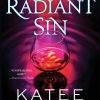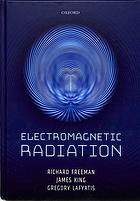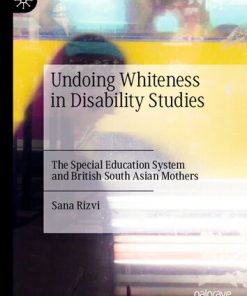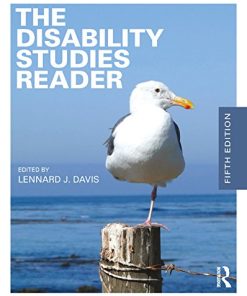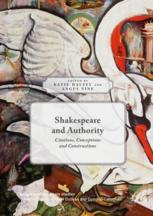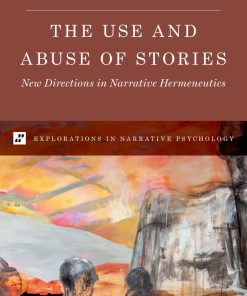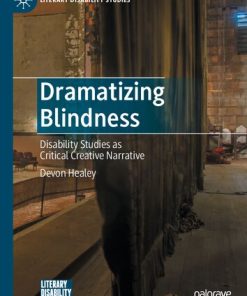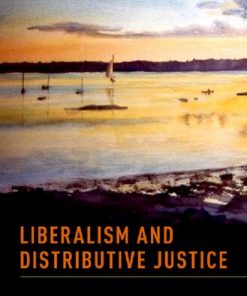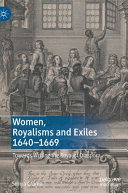Shakespeare and Disability Studies Sonya Freeman Loftis
$50.00 Original price was: $50.00.$25.00Current price is: $25.00.
Shakespeare and Disability Studies – Ebook Instant Download/Delivery ISBN(s): 9780198864530,0198864531
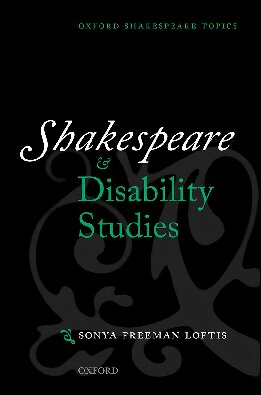
Product detail:
- ISBN 10: 0192650076
- ISBN 13: 9780192650078
- Author: Sonya Freeman Loftis
Shakespeare and Disability Studies argues that an understanding of disability theory is essential for scholars, teachers, and directors who wish to create more inclusive and accessible theatrical and pedagogical encounters with Shakespeare’s plays. Previous work in the field of early modern disability studies has focused largely on Renaissance characters that a modern audience might view as disabled. This volume argues that the conception of disability as residing within individual literary characters limits understandings of disability in Shakespeare: by theorizing disability vis-a-vis characters, previous studies have largely overlooked readers, performers, and audience members who self-identify as disabled. Focusing on issues such as accessible performances, inclusive casting, and Shakespeare-based therapy, Shakespeare and Disability Studies reinvigorates textual approaches to disability in Shakespeare by reading accessibility as an art form and exploring both the powers and potential limits of universal design in theatrical performance. The book examines the complex interdependence among the concepts of theory, access, and inclusion—demonstrating the crucial role of disability theory in building access and examining the ways that access may both open and foreclose inclusive dramatic practice. Shakespeare and Disability Studies challenges Shakespearians, from students to audience members, from classroom teachers to theatre practitioners, to consider how Shakespeare, as industry, as high art, and as cultural symbol, impacts the lived reality of those with disabled bodies and/or minds.
Table of contents:
- 1. Cripping (and Re-Cripping) Richard: Was Richard III Disabled?
- Resisting Richard’s Disability in History
- Resisting Richard’s Disability in Theory
- Resisting Richard’s Disability on Film
- Revealing and Concealing Richard: Displaying Disability in The Hollow Crown
- Internalizing Oppression, Cripping Richard
- Conclusion: Re-Cripping Richard
- 2. Making it Accessible: Building Access in Shakespearian Spaces
- Making Shakespeare Accessible
- Revolutionizing the Relaxed Performance
- One Hundred Per Cent Accessible?: Best Practices for Accessible Theatre
- The Art of Access
- 3. Play for All: Shakespeare Therapy and the Concept of Inclusion
- Shakespeare Therapy outside of the Medical Model: DE-CRUIT
- Autistic Culture and Shakespeare Therapy: the Hunter Heartbeat Method
- What if Shakespeare is the cure? Passing and Performing Neurotypical
- ‘This island’s mine’: Resisting the Colonization of Autistic Culture
- Conclusion: Autistic Ways to Play
- 4. Neurodiverse Shakespeares: Mental Disability in Still Dreaming
- Interdependency, Accessibility, and Crip Time in Still Dreaming
- The ‘Magic’ of Shakespeare: Cure versus Community
- Afterword: The Brilliant Red of Shakespeare
People also search:
You may also like…
Arts - Performing Arts
Uncategorized
Uncategorized
Poetry - American Poetry
Politics & Philosophy - Anthropology
History - European History
Women, Royalisms and Exiles 1640–1669: Towards Writing the Royalist Diaspora



